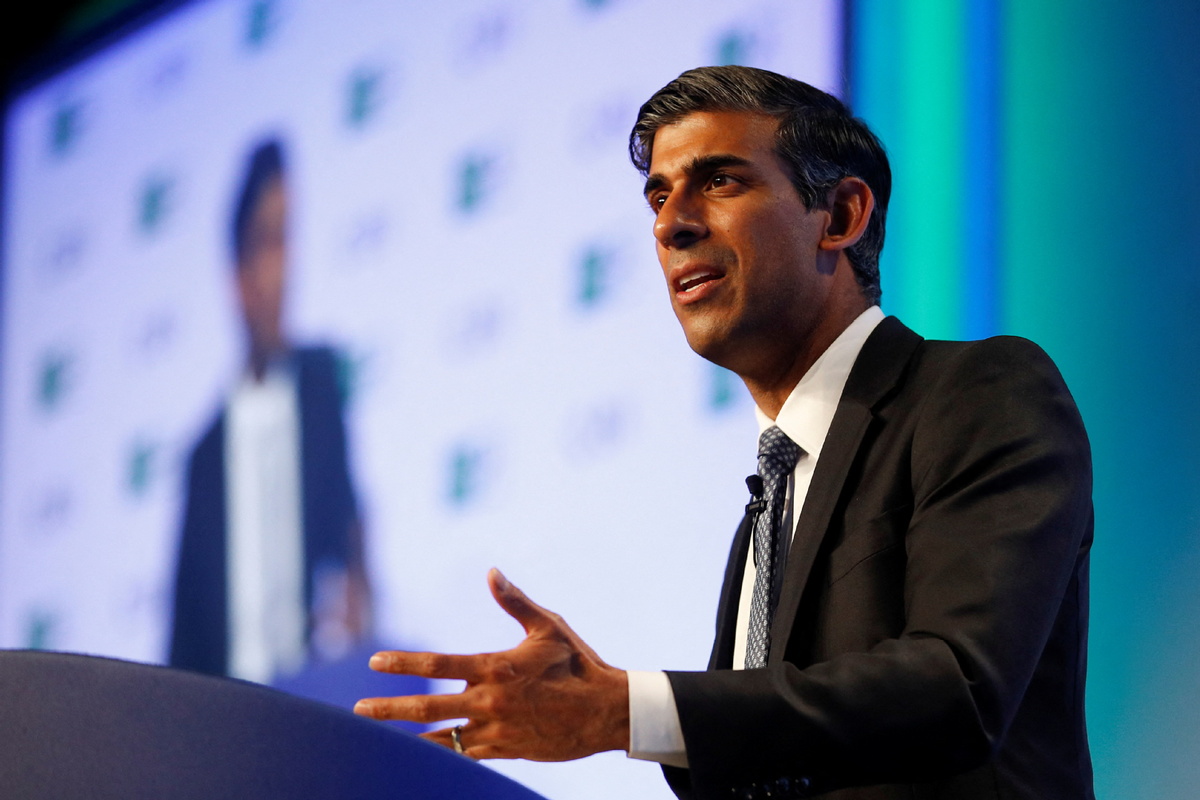UK to 'cut business taxes in fall'
By EARLE GALE in London | China Daily Global | Updated: 2022-05-20 09:19

Chancellor promises tax breaks for firms to increase investment amid rising prices
The United Kingdom's finance minister, Chancellor of the Exchequer Rishi Sunak, has promised to cut business taxes in his budget this fall.
In a speech to the Confederation of British Industry, or CBI, he said the move should allow them to ramp up investment ahead of a sharp rise in corporation tax next year.
Sunak called on business leaders to "invest more, train more, and innovate more" as companies recover from the impact of the novel coronavirus pandemic.
"In the autumn budget, we will cut your taxes to encourage you to do all those things," he said. "That is the path to higher productivity, higher living standards, and a more prosperous and secure future."
Tony Danker, director-general of the CBI, which represents 190,000 businesses, told him some companies cannot wait that long.
"There's a window now where firms are deciding whether to stick or twist on their spending plans, so not everything can wait until autumn," he told delegates.
The CBI has warned that capital investment will plummet in 2023, leaving the UK at the bottom of the pile among G7 members.
The Organization for Economic Co-operation and Development, or OECD, has said companies are investing the equivalent of 10 percent of GDP each year in the UK. But rival nations are enjoying investment of 14 percent, which suggests the UK will increasingly lose ground.
In addition to the prospect of the UK becoming less competitive internationally, there was more bad news for British workers this week, with an analysis of the country's minimum wage policy highlighting problems.
The review by the Low Pay Commission found the government's decision in April to raise the minimum wage an employer can legally pay a worker-by 6.6 percent, to 9.50 pounds ($11.75)-did little to ensure the country's poorest people had more money in their pockets.
The hike, the study said, was off-set by downward adjustments to top-up benefits paid by the state, leaving workers where they started; a phenomenon that has been repeating ever since the policy was introduced in 2015.
The commission, known as the LPC, an independent body that advises the government on pay, said in The National Living Wage Review (2015-2020) the policy has, however, helped narrow inequality. But it said it has failed to improve productivity.
Bryan Sanderson, the LPC's chair, said the policy has had successes and failures.
"It is important we learn the lessons of recent history," he said. "This review is a timely reminder of the policy's achievements, as well as its limitations."
Sanderson said fears the minimum wage would trigger job losses proved to be unfounded.
"Productivity improvements, however, were elusive," he said. "And the impact on workers' incomes was tempered by other factors."
The Financial Times newspaper said workers on minimum wage actually had a pay cut in real terms this year, because inflation in April ran at 9 percent, its highest level in more than 40 years, and well beyond the 6 percent rise.
























